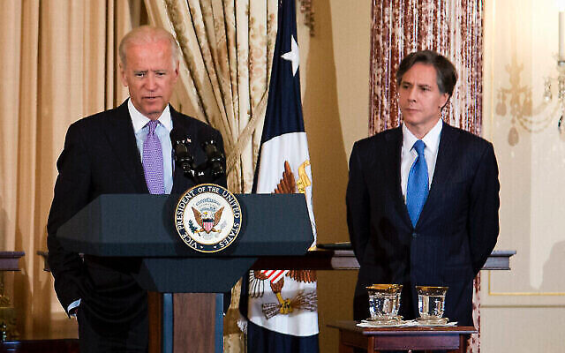2023 was marked by an obvious and more engaged American will of relaunching the political process related to the Western Sahara issue. The Biden administration efforts come as those of the UN Secretary's Personal Envoy Staffan de Mistura proved to be limited. The latter failed to bring together the parties involved in the territorial conflict to the negotiating table. Hence, Washington has decided to go behind the scenes and play its own part, away from the UN.
In September, the United States sent the Deputy Assistant Secretary for North Africa Joshua Harris, to the region. A tour that coincided with De Mistura's visit to Morocco, but with different objectives from those of the UN diplomat. The American diplomat went to the Tindouf camps for a two-day visit, marked by his talks with the leader of the Polisario, Brahim Ghali. Harris then headed to Algiers, where he met with Algerian Foreign Minister Ahmed Attaf. The US official ended his first tour in the region with a meeting, in Rabat, with the Moroccan Foreign Minister, Nasser Bourita.
From his meetings with representatives of the three parties, Joshua Harris learned several lessons. Back in the region in December, Harris skipped the Polisario and only held talks with the two real actors in this conflict : Morocco and Algeria.
Turning the page on the status quo
«Americans believe that this is the right time for a solution to the Sahara question. This is the first time that we have noted a real determination of the United States to resolve this regional dispute», Bahi Larbi Ennass, president of the Center for Peace, Political and Strategic Studies, based in Laayoune, told Yabiladi.
«The visits of Joshua Harris show that the issue is now a priority for the Americans, who want to turn the page on the status quo while other international stakeholders are already present in the Sahel», said this former member of the Polisario.
For his part, Salem Abdelfattah links Joshua Harris' two tours to the US recognition of Morocco's sovereignty over Western Sahara, announced on December 10, 2020 by former President Donald Trump. «A decision that the Biden administration has not revised», observes the president of the Sahrawi Observatory of Information and Human Rights.
«The American commitment to the Sahara comes as a way to fill the political void in the Sahel and West Africa, noted following the decline of French influence in these two regions and the arrival of new actors, such as China, Russia, Turkey and Iran».
«This forcing by the United States has at least made it possible to soften the Algerian rejection of a political solution to the conflict, based on compromise. This is evidenced by the absence of the traditional press releases condemning the latest Security Council resolution, 2703 adopted on October 30, 2023, or the December 23 meeting in Marrakech between Morocco and the Sahel countries».
For the record, Algeria used to denounce the inaugurations of consulates of African and Arab countries in Laayoune and Dakhla or previous resolutions of the UN executive body.
The more assertive commitment of the United States is expected to continue. But the cards could be reshuffled in November 2024, with a new American administration in power.





 chargement...
chargement...













